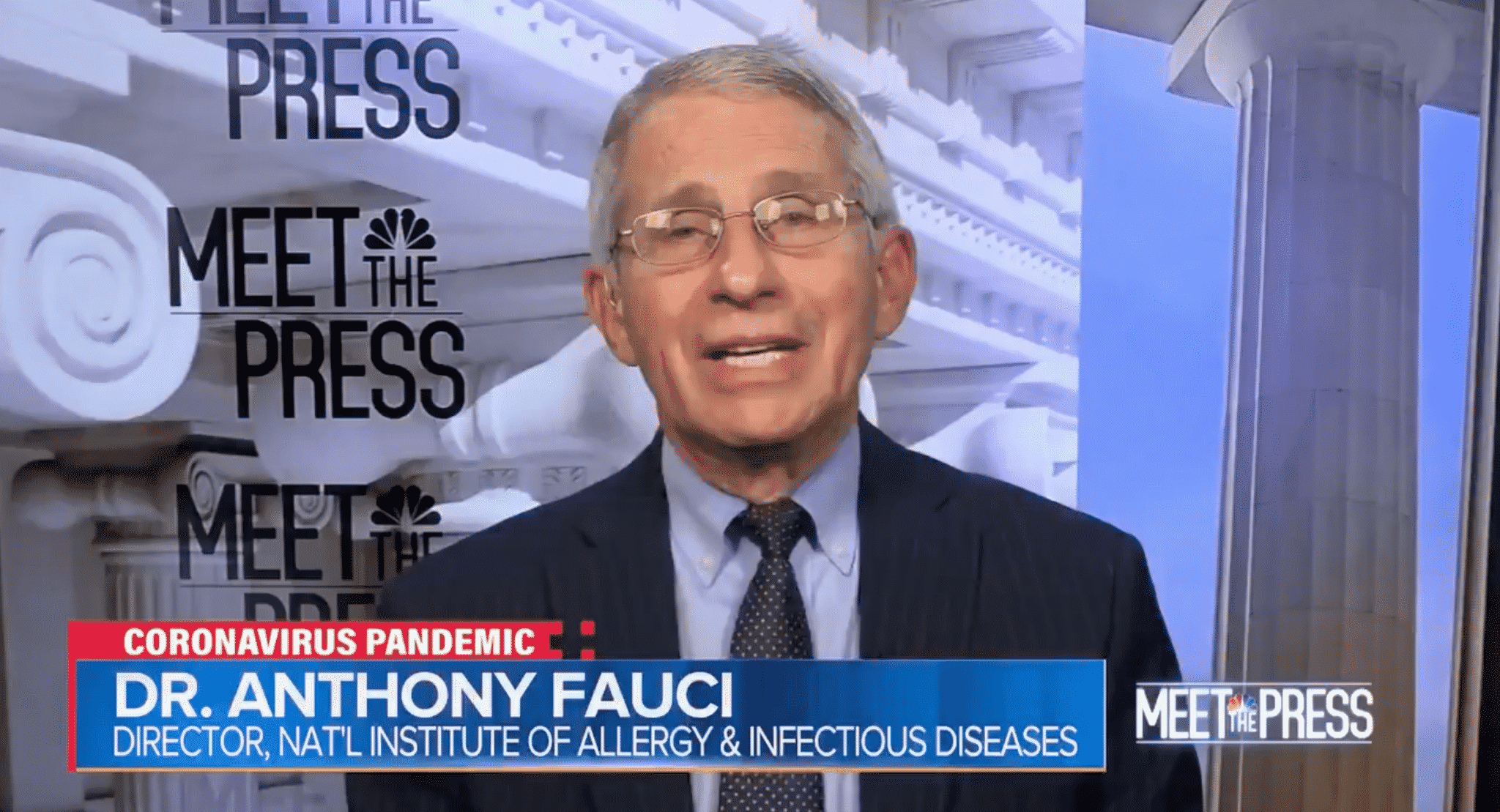Dr. Anthony Fauci says people vaccinated against COVID-19 should continue to wear masks to limit the chances of potentially inadvertently infecting vulnerable people.
During an appearance on NBC’s “Meet the Press” on Sunday, Fauci was asked why people should continue to wear masks even after they are vaccinated.
“Okay, this is something that as we get more information, it’s going to be pulling back that you won’t have to,” Fauci began. “But currently, the reason is that when you get vaccinated, you are clearly diminishing dramatically your risk of getting infected.”
He continued, “However, what happens is, you might get infected and get absolutely no symptoms, not know you’re infected, and then inadvertently go into a situation with vulnerable people, and if you don’t if you don’t have a mask, you might inadvertently infect them. Now there’s a small risk of that, but it’s there.”
He went on to say that there could be variants of the virus that the vaccines do not provide protection from.
Watch the video below:
TODAY: @chucktodd: "Why does a vaccinated person have to wear a mask?"
— Meet the Press (@MeetThePress) April 18, 2021
Dr. Fauci: "You dramatically diminish" possible Covid infection with a vaccine, but vaccinated people could still carry infection.
"If you don't have a mask, you might inadvertently infect" others. pic.twitter.com/pATPWCm65T
While Centers for Disease Control and Prevention (CDC) Director Rochelle Walensky says that data has shown that vaccinated people do not carry the virus, her agency still recommends that people continue to wear masks, practice socially distancing, and avoid crowded areas if they are vaccinated.
Additionally, the CDC said that so far, about 5,800 individuals out of the roughly 77 million Americans who had been fully vaccinated, as of Thursday, had been infected with the virus.
Tara Smith, a professor of epidemiology at the Kent State University College of Public Health in Ohio, told NBC News, “This is a really good scenario, even with almost 6,000 breakthrough infections.”
“Most of those have been mildly symptomatic or asymptomatic. That’s exactly what we were hoping for,” she added.
























 Continue with Google
Continue with Google